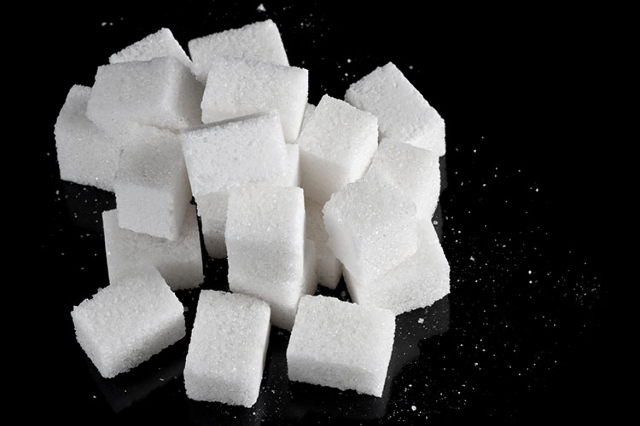How to kick that sugar addiction to the curb
Many of us are sugar-holics: we crave it, we indulge in it, and we lose control. While sugar is in no way nicotine or other street drugs, it is addicting ... very addicting.
Our sweet tooth (or should I say sweet "teeth") stems from the reality that sugar can hack into an area of our brain that releases "feel good" hormones. These hormones were designed to help us survive and provide a reward mechanism, similar to when we see someone we love. That makes sense. Like Cookie Monster, "Me love cookies...and all things sweet."
Although sugar is sweet to our taste buds, it can sour our health. Added sugar can pack on the pounds and cause associated problems of obesity, including diabetes. More recently, researchers have discovered that added sugar, on its own, regardless of other health problems, can more than double the risk of death from heart disease!
Dr. Nina's What You Need to Know: To Kick That Sugar Addiction to The Curb
Cold Turkey Or Gradual Wean?
We are talking about sugar, not crack. Because it is not immediately harmful or deadly, we can afford to kick the habit gradually. Like the turtle and the hare, slow and steady will win the race, and make it more likely that we will stick with it.
Knowing is Half the Battle
One of my greatest life lessons came from the cartoon G.I. Joe. On that note, knowing that when you first start cutting back on sugar, you may feel tired or edgy can help you get through this temporary rough patch. Not to fret; it is a short rocky patch on the road to better health.
Sugar Highs
Our blood sugar levels, and "feel good" hormones, skyrocket after consuming soda, cookies, and cake. This party, or "high" is cut short because our bodies respond by releasing the hormone insulin. Insulin moves glucose from our blood into our cells and drops our blood sugar levels. This can make us "crash" and feel shaky. We try to get "high" again by eating more sweets, and literally and figuratively, feed our addiction.
Fruit & Fiber
Satisfy our sweet tooth (or teeth) with fruit. Although fruit contains simple sugars, it also contains vitamins, nutrients, antioxidants and fiber which can slow the process. Fiber delays the absorption of sugar and decreases the sugar highs and consequent lows. Additionally, fiber makes our tummies feel full and can decrease the number of calories we consume.
Instead of reaching for that cookie, indulge with a banana, apple, mango, pear or pineapple. The list goes on. Consider blending fruit with nonfat yogurt for a fun and healthy treat. And for the kids, or the kids at heart, make popsicles!
Dehydration
Sometimes what we perceive as a sugar craving may really just be thirst. So the next time we crave for that sugar fix, let's consider reaching for a glass—or two—of water first. We may not even want the sugary item after.
Brush Your Toothsies And rinse with mouthwash.
The clean, mouth-refreshing taste from toothpaste and mouthwash will make many sweets taste bad. Alternatively, pop a piece of minty gum or a breath mint into our mouths to help deter us from that sugary fix.
Get Your ZZZ's
Not getting a good night's sleep can make a "sober" sugar addict relapse, or "fall off the wagon." Sleep deprivation sends our hormones out of whack and makes us crave for high calorie, high sugar foods.
Move It
We often hear the term "work up an appetite." But did you know that exercising can actually reduce our appetite rather than increase it? It sounds like a win-win: burning calories and eating less.
Watch Out For Wolves in Sheep's Clothing
Sugar comes in many forms and names, including glucose, sucrose, brown rice syrup, high-fructose corn syrup and dextrose. Additionally, foods that do not taste sweet can be loaded with sugar; for example, ketchup, pasta sauce, bread, pasta and rice. To avoid them, read the nutrition labels.
This information is for educational purposes and should not be considered specific medical advice. Always consult with a qualified medical professional regarding your individual circumstances.
Dr. Nina Radcliff is dedicated to her profession, her patients and her community, at large. She is passionate about sharing wise preventive health measures.

















